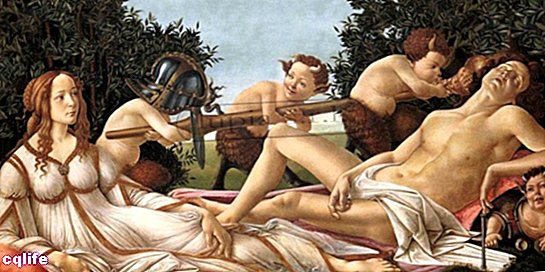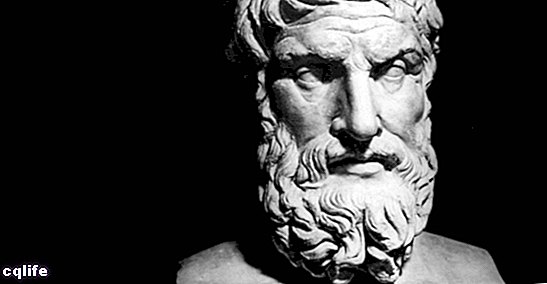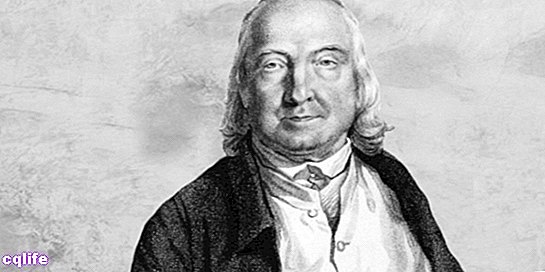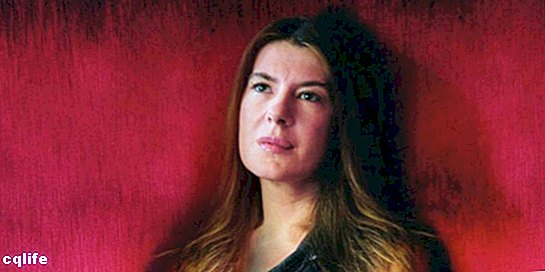- What is hedonism?
- Characteristics of hedonism
- Types of hedonism
- Representatives of hedonism
- Main opponents of hedonism
- Hedonism today
We explain what hedonism is, its currents, characteristics and main representatives in history and today.

What is hedonism?
Hedonism is the philosophical school and doctrine moral that considers pleasure as the sole and supreme good of the existence human, so that satisfaction becomes the sole end and foundation of the life.
Its name comes from the Greek word hédoné, equivalent to "pleasure", and its origins come from the Antiquity classical, although distinct forms of hedonism have existed throughout the history. Hedonism is often confused with the pursuit of merely physical pleasures, which is only one aspect of what is valued by this doctrine.
The art, the friendship, the knowledge, sympathy, are forms of pleasure pursued by hedonists. On the other hand, physical forms are considered ephemeral or even counterproductive, since they provide brief moments of intense pleasure in exchange for suffering that can be much longer lasting.
In Greek antiquity, two great schools of hedonistic philosophical thought arose: the Cyrenaic and the Epicurean, led by Aristippus of Cyrene and Epicurus of Samos, respectively.
- The Cyrenaic school. It was led by Aristipo de Cireno, a disciple of Socrates, and one of the great classical representatives of hedonism. Founded between the 4th and 3rd centuries BC. C., argued that pleasure can be chosen individually, through the realization of personal desires, overriding the wishes of others, even if it meant committing immoral acts. In the same way, it invited us to think only about today, since the future is uncertain, extracting the greatest amount of pleasure from the moment we have lived.
- The Epicurean School. Instead, I had like objective avoid suffering at all costs, seeking the happiness at all costs through the use of prudence and reason, thus applying the Socratic doctrine and the Aristotelian "good life". Thus, self-control and the management of pleasures were the guide to avoid future suffering, which often led his followers to a life guided by indifference to pain, rather than positive enjoyment.
Classical hedonism succumbed to Christian thought during the Middle Ages. However, it was revived in the 18th century by the British philosopher and economist Jeremy Bentham (1748-1832), turned into a moral and psychological doctrine, hand in hand with the utilitarianism of the time.
Thus hedonism arrived at the present time, in spite of being constantly under attack of the moral doctrines and of the moralism.
Characteristics of hedonism

Hedonism is characterized by the following:
- It is a philosophical and moral doctrine that understands pleasure as the supreme and only value of human existence. Said pleasure, however, is not necessarily understood as physical or sexual pleasures, but also involves the pleasures of the spirit, or the very absence of suffering.
- As a philosophical school, it arose in Classical Greece with the two schools of hedonism: the Cyrenaic directed by Aristippus of Cyrene, and the Epicurean directed by Epicurus of Samos.
- It is generally a way of thinking individualistic, contrary to social welfare doctrines such as utilitarianism, and also to moral doctrines, like most of the religions.
- Most hedonists treated pleasure and suffering as if they were variants of the heat and cold, that is, gradually, mediated by a simple and unique scale.
Types of hedonism
We have already seen the two classical schools of hedonism: the Cyrenaic and the Epicurean. But hedonistic thinking is not limited to them, but reappeared in the history of ideas in different ways, such as:
- Eudaemonism. Also of classical Greek origin, specifically in Aristotle himself, it is a doctrine that justifies everything that is necessary to achieve the happiness. The eudaemonists affirmed that to achieve happiness one must act according to the nature, pursuing the middle point between our animal (physical) part and our social (mental) part.
- Libertinism. An extreme form of hedonism that considers any type of moral or sexual restriction of the individual not only unnecessary, but also harmful, contrary to the very nature of the individual. human being. It was defended by the English poet and writer John Wilmot (1647-1680), as well as by the famous Marquis de Sade (1740-1814) in his literary writings, which earned him jail and finally the asylum, in addition to the prohibition of his works by the Catholic Church.
- Utilitarianism. Born between the 18th and 19th centuries by the hand of British philosophers Jeremy Bentham (1748-1832), James Mill (1773-1836) and John Stuart Mill (1806-1873), this doctrine turned and led traditional hedonism to the social welfare of the majority, from the idea of the pleasure of being useful. From a stricter view of hedonism, however, this doctrine was left out, because it was not precisely individualistic in its approach to pleasures.
- Contemporary hedonism. Mainly defended by the French philosopher Michel Onfray (1959-) and by the French writer and sexologist Valérie Tasso (1969-). Try to find a way to live the society contemporary in a jubilant way, which considers the passions of the body as allies and not as enemies, and which privileges the moment over becoming.
Representatives of hedonism

The main representatives of hedonism throughout history would be the following:
- Aristippus (435-350 BC). Greek philosopher born in the town African Greek of Cyrene, was a disciple of Socrates, whom he met during the Olympic Games and accompanied until the day of his execution. Founder of Cyrenaic hedonism, under the command of which he was succeeded by his daughter Areta, he was branded as "effeminate" because he lived surrounded by luxury and accepted every comfort that was offered to him.
- Epicurus (341-c. 270 BC). Greek philosopher founder of Epicureanism and rational hedonism, his doctrine was greatly influenced by the works of Aristotle, Democritus and the Cynics. He rebelled against Platonism, against the ideas of fate and doom, and founded his own school, nicknamed "The Garden", which allowed the entry of women, slaves and prostitutes. His entire work has been lost, but we know about it thanks to the Roman philosopher Lucretius and his By rerum natura.
- John Wilmot (1647-1680). Second Earl of Rochester, he was the author of a libertine poetic work, a disciple of the thinker Thomas Hobbes and of other French libertines who sought to rescue Epicurus, such as Théophile de Viau or Claude LePetit. He died of syphilis alcoholism Y depression, but it is said that he accepted extreme unction only in his last minutes.
- Marquis de Sade (1740-1814). Whose real name was Donatien Alphonse François de Sade, he was a French philosopher and writer whose fictional work is carried out by antiheroes, rapists and promiscuous, as well as virginal young women who renounce their chastity more or less voluntarily. His work was persecuted by the Catholic Church and the Marquis sentenced to jail and asylum for 27 of his years of life. It was always a character scandalous, whose fame continues to this day.
- Jeremy Bentham (1748-1832). Philosopher, economist, thinker and English writer, he was the founder of utilitarianism, a way of thinking that brought him closer to democratic and progressive aspects, under the objective of achieving "the greatest happiness for the greatest number" of citizens. Thus, for utilitarianism, the good is the useful and the useful increases pleasure and decreases pain.
Main opponents of hedonism
Hedonism was opposed by the moral sectors of society from its very beginning. His position was heightened with monotheistic religions, such as Christianity, whose Catholic Church is rigidly opposed to sensual ways of thinking.
According to traditional Christian doctrine, the body is fleeting and ephemeral, so it makes no sense to please it instead of guarding the purity of the soul, which will endure and be judged by God.
On the other hand, philosophers such as the British George Edward Moore (1873-1958), founder of analytical philosophy and defender of philosophical realism, dedicated a good part of his work Ethical Principle from 1903 to the refutation of hedonism, accusing him of falling into a "naturalistic fallacy" by conceiving pleasure as the highest good.
Similarly, positive and cognitive psychologists have suggested that the idea that life is based on the pursuit of pleasure, rather than commitment, leads to a higher rate of dissatisfaction, than what the American psychologist Martin Seligman (1942-) calls “committed life”.
Hedonism today

There is a contemporary hedonistic aspect that various authors and philosophers carry out, without becoming a unified doctrine as such. For example, Michel Onfray and Valérie Tasso propose a philosophical hedonism that does not go through money and money. consumption capitalist, but pursues "the difficult art of establishing peace with yourself" as Tasso puts it in his Anti-manual sex .
On the other hand, the British transhumanist philosopher David Pearce raises the ethical imperative of marching towards the abolition of suffering for all those beings capable of feeling it. This position is defended in his book The hedonistic imperative, which serves as a manifesto for the World Transhumanist Association of which Pearce is a founding member.
